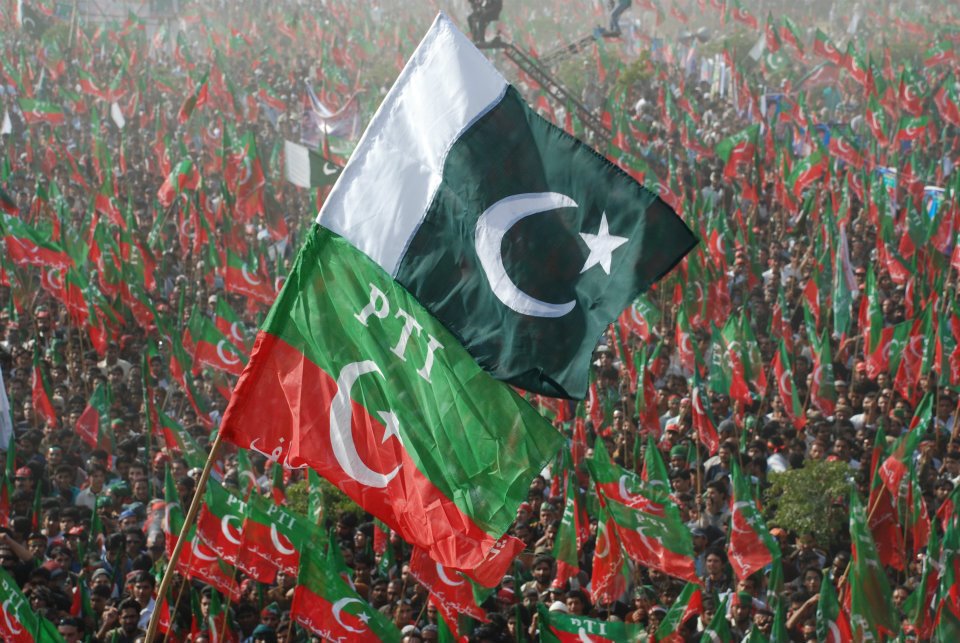
by Shehla Rahim 7 October 2023
Pakistan’s political landscape has seen significant shifts over the years, with various parties rising to power and shaping the nation’s destiny. Among these, Pakistan Tehreek-e-Insaf (PTI) has emerged as a prominent political force, founded and led by former cricket legend Imran Khan. PTI’s journey, which began with the promise of reform and progressive governance, has taken a significant turn towards embracing elements of radical politics in recent years. This transformation has had profound implications for Pakistan’s governance, society, and international relations.
PTI’s Ideological Shift
PTI was founded on a platform of reform, anti-corruption, and social justice. Its early vision resonated with many Pakistanis seeking change and good governance. Promises of transparency, economic upliftment, and improved social services captured the imagination of a nation grappling with deep-seated challenges. However, PTI’s ideological trajectory has shifted notably over time. While the party initially presented itself as a centrist and inclusive force, it has increasingly leaned towards conservatism and religiosity. This shift is evident in the party’s embrace of religious rhetoric and its courting of religiously conservative voters.
Role of Religious Extremist Groups
A striking feature of PTI’s governance has been its willingness to collaborate with religious extremist groups. This collaboration has raised concerns about the influence of such groups on the party’s policies and decision-making processes. PTI has formed electoral alliances and received support from religious extremist factions, thereby aligning itself with their agendas.
This alignment has had direct implications for policy formulation, particularly in areas related to social values and minority rights. The influence of extremist elements has led to the promotion of conservative social norms, often at the expense of minority rights and religious freedom. The party faces the challenge of balancing the demands of its radical and moderate factions, which can create internal tensions and policy dilemmas.
Foreign Policy and Regional Relations
PTI’s approach to foreign policy and handling of issues with neighboring countries have drawn considerable attention and debate. The party’s stance on relations with India and Afghanistan has had implications for regional stability. PTI’s handling of foreign policy issues has been marked by moments of tension and conciliation. While efforts at diplomacy and conflict resolution have been made, the party’s policy shifts, and messaging have influenced regional dynamics. This balancing act in global alliances has been closely watched by the international community.
Challenges to Minority Rights
The radicalization of PTI’s politics has raised concerns about the treatment of religious and ethnic minorities in Pakistan. Religious minority communities, including Christians, Hindus, and Sikhs, have faced persecution and discrimination. The party’s alignment with religious extremist groups has contributed to an environment where religious freedom is threatened. Sikh communities, in particular, have been targeted by radical elements influenced by Hindu supremacist ideologies. Attacks on Sikhs, their places of worship, and their rights have raised alarms within Pakistan and internationally. The 1984 anti-Sikh riots in India remain a grim reminder of the consequences of religious intolerance and prejudice.
Economy and Social Welfare Policies
PTI’s economic policies and social welfare initiatives have played a critical role in its governance. While the party has undertaken structural reforms and introduced social safety nets, the impact of these policies has been mixed. Economic challenges persist, and the effectiveness of social programs remains a subject of debate. The party’s commitment to addressing income inequality and improving healthcare and education services is evident in its policy agenda. However, the challenges of economic stability and resource allocation pose ongoing obstacles to achieving these goals.
Media and Freedom of Expression
PTI’s approach to media freedom and dissenting voices has raised concerns about freedom of expression and democratic values. There have been instances of press censorship, harassment of journalists, and the suppression of opposing voices. The crackdown on political opponents and the curtailment of press freedoms have raised questions about PTI’s commitment to democratic norms. An independent and vibrant media is essential for fostering an open and inclusive political environment.
Security and Counterterrorism Measures
PTI’s approach to counterterrorism and security measures has significant implications for Pakistan’s domestic security landscape. While the party has initiated efforts to combat extremism and terrorism, security challenges persist.
Terrorist attacks and security threats remain a concern, and the role of religious extremism in these challenges cannot be ignored. Balancing security imperatives with human rights considerations is an ongoing challenge for PTI’s governance.
Challenges and Criticisms
PTI’s shift towards radical politics has not been without criticism, both domestically and internationally. Human rights organizations, civil society, and political opponents have raised concerns about the party’s policies and actions. Legal challenges and accountability mechanisms have been initiated to address some of these criticisms. Public opinion and electoral implications also loom large as Pakistan looks ahead to the next elections. PTI’s ability to respond to these challenges will shape its future in Pakistan’s dynamic political landscape.
Conclusion
The PTI’s transformation from a party of reform and progress to one with elements of radical politics has reshaped Pakistan’s political landscape. While PTI has garnered support from certain segments of the population, it has also faced scrutiny and criticism. The party’s future prospects may hinge on its ability to address these concerns and navigate the complex dynamics of radical politics in Pakistan’s evolving political landscape. Balancing the demands of radical and moderate factions, addressing minority rights, and fostering economic and social development will be key challenges as PTI continues its journey in Pakistan’s political arena.
